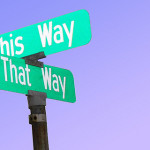We run our website the way we wished the whole internet worked: we provide high quality original content with no ads. We are funded solely by your direct support. Please consider supporting this project.
Isn’t Open Theism outside of historic orthodoxy?
The Church has never used one’s view of divine foreknowledge as a test for orthodoxy. And while the open view has always been a very minor perspective, it has had its defenders throughout Church history and it has never been called “heresy” (until in mid 1990s when some started using this label).
According to some African American church leaders, it has been the predominant view in the African American Christian tradition (e.g. in The Color of God: The Concept of God in Afro-American Thought [Mercer Press, 1987], Major Jones argues that the African Christian experience of oppression has enabled them to seize a dimension of the biblical portrait of God which the classical western tradition missed because of its overemphasis on control and its indebtedness to platonic philosophy).
More research needs to be done on the history of the open view, but my own research thus far has found advocates as far back as the fourth century (e.g. Calcidius). What’s most interesting about Calcidius is that his view is espoused in his Commentary on Plato’s Timaeus, which was used extensively throughout the middle ages. Yet, so far as I’ve been able to discern, no middle scholar thought his view was heretical enough to comment on.
I recently found that in the early 18th century, a man named Samuel Fancourt published an essay entitled Concerning Liberty Grace and Prescience which led to a good deal of discussion about the topic in England. His arguments largely parallel those used by Openness advocates today. Also, it appears that Andrew Ramsay, a contemporary of John Wesley, espoused the teaching that God doesn’t know the future strictly as a domain of settled facts.
The topic was much discussed in the 19th century, being advocated by the renowned Bible commentator Adam Clarke, the popular Methodist circuit preacher Billy Hubbard, and some within the Stone-Campbell Restoration movement such T.W. Brents, whose 1874 book The Gospel Plan of Salvation puts the Open View of the future on center stage. This book was widely used as a theology textbook in the Stone-Campbell movement. On top of this, the Methodist professor and chancellor of Ohio Weslyean University, L. D. McCabe, wrote several books espousing Open Theism on biblical as well as philosophical grounds.
At the turn of the century the view was espoused by Finnis Dennings Dake, author of the famous and influential Dakes Annotated Bible. The view had occsional defenders throughout the 20th century and became a standard teaching among the early founders of Youth With a Mission.
More important than this history, however, is the fact that Protestants, unlike Catholics, claim to place Scripture ahead of tradition on matters of faith. Consider that the original Reformers all claimed to have found something in Scripture that was previously not seen, at least not for centuries. It was the same with the various reforming groups that followed them, from the Anabaptists to the Weslyans, Nazarenes and Pentecostals. All of these groups broke from tradition at certain points with claims to theological insights that were previously overlooked. We may or may not agree with the particulars of each of these movements, but the point is that the entire Protestant movement has been rooted in the conviction that the church always needs more reforming. No one can claim to be the definitive authority on all that God wants to reveal to his people.
So, whether a particular theological claim contributes to this on-going reformation or not needs to be tested against Scripture. It can’t simply be dismissed because it’s not “tradition.” And this is all open theists have ever asked for.
Category: Q&A
Tags: Open Theism, Q&A
Topics: Open Theism What it is and is not
Related Reading

What Unfulfilled Prophesies Say About the Open View
Image by Lori Greig via Flickr Yesterday, we posted about how Messianic prophesies are understood in the open view of the future. Today, this post will look at prophesies that are not fulfilled in the way predicted and what that can tell us about the open view of the future. In John Goldingay’s excellent multi-volume work, Old…

Podcast: Is Open Theism Growing in the World?
Greg discusses the place of Open Theism in contemporary Christianity. http://traffic.libsyn.com/askgregboyd/Episode_0149.mp3

What is the significance of 1 Samuel 15:35?
“…the Lord was sorry that he made Saul king over Israel.” (see 1 Sam. 15:12). Once again, the Lord expresses his regret over having made Saul king of Israel, an emotion which is inconsistent with the classical view of God’s foreknowledge. It’s important to note that Samuel had prayed all night trying to change the…

What is the significance of 1 Samuel 23:9–13?
“David heard that Saul knew that he was hiding in Keliah. Saul was seeking to kill David, so David wisely consulted the Lord as to what he should do. David said, ‘O Lord, the God of Israel, your servant has heard that Saul seeks to come to Keliah, to destroy the city on my account.…

What is the significance of Ezekiel 22:29–31?
The Lord says he “sought for” someone to stand in the breech for Israel “but I found none.” Hence Israel experienced the wrath of God. If everything that shall ever come to pass is eternally fixed in the divine mind, God would have foreknown that no one would respond to his call for a Moses-like…

How do you respond to John 21:18–19?
Jesus says to Peter, “‘[W]hen you were younger, you used to fasten your own belt and to go wherever you wished. But when you grow old, you will stretch out your hands, and someone else will fasten a belt around you and take you where you do not wish to go.’ (He said this to…
